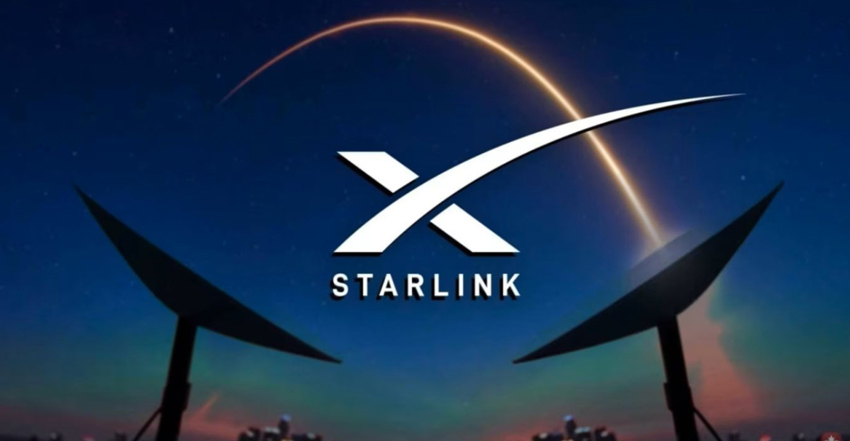During the 2024 July-August uprising against the government in Bangladesh, the government imposed a nationwide internet blackout for a few days. This was a harsh new reality the population had to come to terms with, as such a measure had never been imposed at a country wide scale. This move automatically sparked discussions about what would happen if Bangladesh had access to global satellite internet providers such like Starlink?
In early 2024, the interim government announced that Elon Musk would be visiting Bangladesh and potentially allow Starlink to commence operations in the country.
Starlink internet will have an inherent advantage over local Internet Service Providers (ISPS) particularly in Bangladesh in 3 key areas:
- Availability in Remote and Rural Areas: Traditional ISPs rely on a lot of underground and overground cabling or even sometimes mobile towers. Starlink can operate as long as the receiver dish has a clear view of the sky.
- Faster Speeds: Unlike ISPs, mobile internet or other satellite internet providers, the Starlink network relies on low Earth orbit (LEO) satellites (about 550 km above Earth) provide significantly lower latency (~20-40ms) and faster speeds (up to 250 Mbps or more in some cases#
- Easier Deployment and Mobility: Unlike fiber or cable internet, which requires expensive infrastructure, Starlink only requires a dish and a power source, making setup quick and easy. Additionally, Starlink’s Roam (formerly Starlink RV) service allows users to take their connection anywhere within a covered region.
Is Starlink immune to government regulations? The short answer is no. This is particularly due to some laws enacted during the early 2000s:
- Section 97 of The Bangladesh Telecommunication Regulation Act, 2001: Empowers the Bangladesh Telecommunication Regulatory Commission (BTRC) to suspend or revoke licenses of service providers if they fail to comply with the terms and conditions of the license or any lawful order.
- Section 46 of The Information and Communication Technology Act, 2006: government is empowered to intercept, monitor, or decrypt data. This section allows the Government to authorize such actions when it deems them necessary for preserving public order
- 144 of the Code of Criminal Procedure, 1898: grants authorities broad powers to impose internet shutdowns based on subjective evaluations of potential threats to public order. The design of telecommunications infrastructure at the network access level—where operators, under licensing conditions, must maintain connections with and provide data access to intelligence agencies like the NTMC under strict secrecy—allows state authorities to monitor, intercept, and restrict internet traffic. This setup enables circumvention of procedural and legal safeguards, fostering a pervasive lack of transparency and accountability.
Below, I shall outline the interpretations of these sections in my own words.
Starlink Must Abide by Local Laws
SpaceX is a company which must comply with the laws of the jurisdictions in which it operates. Therefore, if a government orders Starlink to terminate operations in its jurisdiction, SpaceX will have a legal obligation to comply with it or risk losing its license to operate in that region. If Starlink was globally launched and unrestricted, it would be possible to access it’s internet from any country. That is precisely why Starlink is unlikely to operate in places like North Korea, China or Russia.
How Starlink Could Be Shut Down in a Region
Governments can compel Starlink to block the internet in specific regions or the entire country by enforcing compliance. Starlink must also adhere to local laws which empower the government to control over the internet. In any case, it is a standard practice for foreign companies doing business in Bangladesh to agree that if their work conflicts with local laws, then local laws shall prevail.
While Starlink is working on Satellite laser links which will allow it to operate independently, the existing network is still heavily reliant on Ground Stations which transmit the internet to the low orbit satellites which in turn provide the internet links to the end consumers. These ground stations are situated in regions where Starlink is currently operating. If these ground stations are blocked or shut down by cutting off power supply, it can significantly disrupt their internet connections.
While a jurisdiction’s law enforcement and even paramilitary forces under the command of the government may lack jamming and cyberattack capabilities, the military does, and such attacks can disrupt Starlink’s operations. This is not a myth, or mere speculation, instances as such are occurring on a daily frequency in the ongoing Russian invasion of Ukraine.
While Starlink is more resilient than traditional ISPs (since it doesn’t rely on local infrastructure), it remains subject to national laws and interference tactics. A government can request its shutdown, and SpaceX is likely to comply, just as it has done in some cases (e.g., limiting Starlink use in Ukraine near Russian-controlled areas). However, in cases of war or crisis, Starlink has proven to be more difficult to shut down compared to traditional internet services.
Lastly, the Starlink equipment costs about $350 and the cheapest personal use plan I found was $120 per month. These translate to about BDT 45,000 and BDT 15,000. Other than businesses, Starlink is unlikely to gain widespread popularity among individual consumers in Bangladesh, given these high costs.
Shafqat Aziz is a Barrister practicing in Bangladesh currently. He holds a Masters in Corporate Law with a keen interest in Corporate Law, Emerging Technology Regulation & Governance
